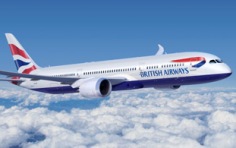International air cargo traffic saw the pace of its recovery slow to 25.2% growth in April downfrom the 28.1% improvement recorded in March due to the eruptions of an Icelandic volcano last
month, IATA announced today. However, air freight was less impacted by the ash crisis thanpassenger traffic.The global purchasing managers’ index rose to its second highest level ever in April, indicatingthat the fundamentals of the air freight business were not impacted by the crisis. “We are,however, nearing the end of the inventory cycle and would expect freight growth to slow down overthe rest of the year,” said Giovanni Bisignani, IATA’s Director General and CEO.
The scale of the ash crisis saw global load factors drop to 76.9% from the 78.0% recorded inMarch. Freight load factors also dipped to 55.3% from the 57.1% recorded in the previous month.While March traffic was within 1% of pre-crisis levels for both passenger and cargo, this slippedto 7% for passenger and 3% for cargo in April, IATA said in a statement.
In regional terms, European cargo traffic experienced the weakest growth in April as pooreconomic performance prior to the ash crisis had left European airlines behind the reboundexperienced by other regions. European cargo growth dropped to 8.3% last month from an already lowfigure of 11.5% in March.
North American airlines recorded a solid increase of 23.8% which was still below the 29% inMarch. Asia-Pacific carriers, which make up 46% of international cargo operations, recorded Aprilgrowth of 33.2%, slightly below the 35.4% during March. The Middle East also saw its cargo growthslow to 25.9% from 35.5% in March. Latin American carriers saw the largest increase in cargo demandfor the second straight month amounting to 63% which is an improvement on the 47.9% recorded inMarch.
Compared to the relatively limited of the volcanic ash cloud on cargo traffic figures, passengerdemand slumped 2.4% as a result of massive flight cancellations in Europe during the six days inApril following the eruption.
“European carriers bore the worst of the volcano’s impact. Their 11.7% drop in passenger trafficcould not have come at a worse time. Europe’s slow recovery from the global financial crisis andits currency crisis are already a huge burden on the profitability of its airlines. Theuncoordinated and excessive cancellations and unfairly onerous passenger care requirements rubbedsalt into the European industry’s wounds,” Bisignani said.
“The ash crisis was a shock. While there is always a danger of the consequences of renewedvolcanic eruptions, the impact on passenger confidence should be limited. Unfortunately, we aretrading ash for two additional uncertainties – strikes and a growing currency crisis – both ofwhich are also focused on Europe,” he added.
Looking ahead, Bisignani challenged Europe to reform its air traffic management. “The ash crisiswas an embarrassing wake-up call for European governments. We need leadership to deliver the SingleEuropean Sky, fair passenger rights legislation and continent-wide coordination,” Bisignaniconcluded.












